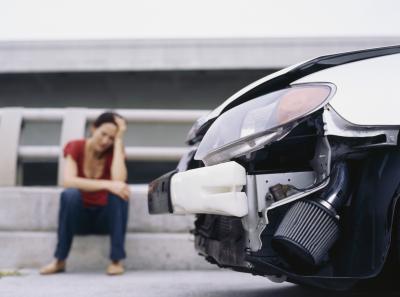Suddenly, the sound of screeching tires, breaking glass and metal crunching fills your ears. You feel yourself slammed into the side of your car as you hit the brake. You have just been in a car accident. The most dangerous moment is over, but you will still have to contend with the aftereffects, like sore muscles.

During a car accident, the body moves in unnatural ways. This is why whiplash is almost exclusively a car accident injury. These unnatural movements can injure bones and muscles.

Muscles can be sore after an accident if the driver or passenger tenses them to brace for the impact. With adrenaline rushing through the nervous system, the muscles are able to perform beyond normal capability.
Pulled MusclesIf the soreness is not caused by tensing or holding on to an object in the car, it may be the result of a pulled muscle. Pulled muscles can occur when the body works beyond its normal abilities.

Make sure the pain and soreness is caused by a muscle and not something more serious, like internal bleeding or a broken bone. Often, pain can radiate from one area, making it difficult to pinpoint its exact location.

Even a minor car accident warrants a trip to the doctor or emergency room. Only a doctor can accurately diagnose or identify an injury caused by a car accident. Often, the adrenaline released by being in this high-stress situation can mask the pain of a serious injury.
